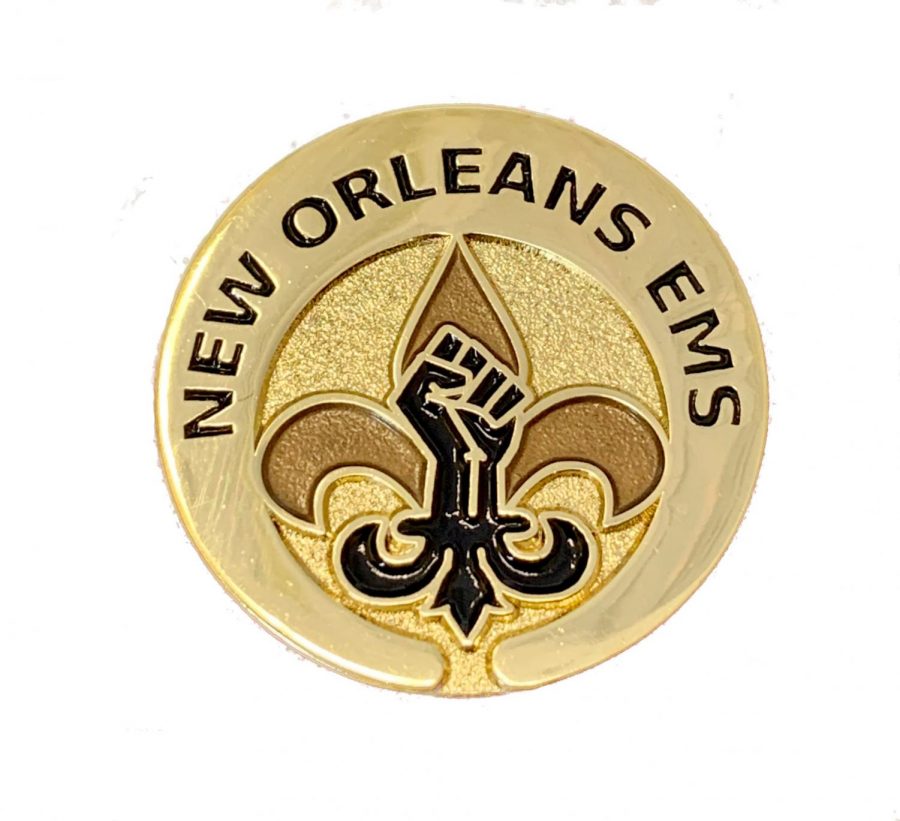New Orleans EMS launches Black Lives Matter pin for workers
New Orleans EMS introduces a Black Lives Matter Pin. The pin is meant to show support for members of the Black community. Photo credit: Courtesy of Lt. Jonathan C. Foucade
March 20, 2021
New Orleans EMS has introduced a Black Lives Matter pin that providers can wear throughout the year.
“We recognize that this was an opportunity to work towards cultural competence and bridging some of those historical gaps within the community,” said Dr. Emily Nichols, director of EMS for New Orleans for almost three years.
When Nichols was in college, she recognized the value of doctor and patient relations. Her senior thesis described doctor-patient relationships in the development of managed care organizations.
“They were becoming popular, and there was a concern that they would shorten the amount of time that a doctor would have with their patients,” Nichols said.
Nichols learned that patients build safe relationships with their doctors when they are able to identify with them, and one of the easiest ways to identify with someone is through symbols such as the Black Lives Matter pin.
This is not the first time EMS has used symbols to show solidarity with a particular group of people. In 2019, EMS introduced the LGBTQIA pins for providers.
“Many years ago I recognized the importance of those visual symbols as far as building patient trust,” Nichols said.
Brionna Wilcher-Hudson, an African-American sophomore sociology major, is somewhat skeptical of the new BLM pin.
“Racial bigots can still buy the pin and practice medical racism. So does it really change anything,” Wilcher-Hudson said.
She is also concerned because the BLM pins are for purchase.
“If someone does not buy and wear the pin, does it mean that they do not support the cause?,” Wilcher-Hudson said.
Her mother is an EMT, so she said she understands how racism is shown toward Black providers as well as Black patients in the medical field.
“I think it is a step in the right direction, but I don’t want to be too quick to give them their props because it could be performative,” Wilcher-Hudson said.
Nichols understands that a pin is not enough to show solidarity with the Black community and the BLM movement.
“We have been very critical of ourselves in acknowledging that a pin is not enough. We do not want our actions to be viewed as performative, so we need to follow this up with training for our staff with a focus on doing what we can to better the health disparities in New Orleans,” Nichols said.
New Orleans EMS is working with local organizations to implement anti-bias training for staff. They have also been working with the National Association of EMS Physicians to identify ways to diversify their staff, and create opportunities for local high school and college students who are interested in working with EMS.
Anyone can purchase a BLM pin from the New Orleans EMS Foundation. A portion of the proceeds will go toward staff training for cultural competency.




